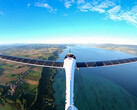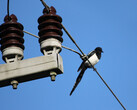Lithium-sulfur batteries have long been on the list of promising battery technologies. The necessary raw materials can be found in plentiful quantities almost anywhere on the planet. In addition, the high energy density of lithium-sulfur promises more range and less weight, and not just for electric cars.
So much for theory. Unfortunately, sulfur is known to be very reactive. Some of the most aggressive acids are based on sulfur. And so the biggest problem with sulfur-based battery cells is that they lose performance after just a few charges.
There have been attempts to make Li-S batteries more durable, ranging from anodes encapsulated with nanotubes to complete solid-state cells. In lab conditions, this can sometimes be achieved quite well, even to the extent that existing lithium-ion batteries are within reach in terms of durability. On the other hand, however, other qualities of sulfur-based batteries then suffer. Either the manufacturing process is extremely expensive or the desired energy density is too low.
A new approach from Monash University in Melbourne, Australia, seeks to break through this stalemate. By utilizing povidone-iodine (PVP-I), Monash engineers have found a way to increase the charge and discharge rates. This results in a powerful and versatile battery with a high density that could not only ensure that enough thrust is available to power electric aircraft during take-off, but charging times could also be significantly reduced.
According to the researchers, energy densities of 400 watt hours per kilogram may well be possible in commercial production, which would easily surpass the best electric car batteries currently available. In electric cars, the Li-S batteries are expected to add an extra 621 miles on a single charge while cutting recharge time to a few hours. The first battery cells for use in drones are expected to be ready in just one year.
Lastly, the real highlight is that Li-S batteries are not only fundamentally inexpensive to manufacture, but the aforementioned povidone-iodine is also freely available and is already commonly used as an antiseptic.



















